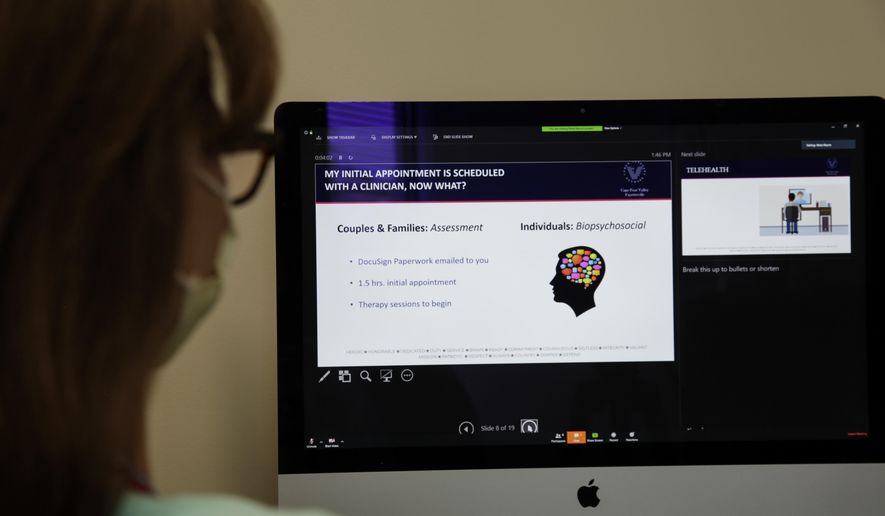A leading mental health nonprofit has released an annual report on America’s emotional well-being — and the results are worse than downbeat.
The Alexandria, Virginia-based Mental Health America (MHA) released its annual State of Mental Health in America report last Thursday.
Analyzing the latest federal data from all 50 states, it estimates that 55% of the more than 50 million Americans who experienced mental illness in 2020 went untreated.
That’s equal to the 56% that last year’s report found did not receive treatment in 2019 — but experts say the real number is likely higher because COVID-19 disrupted the collection of national data.
“From high numbers of our youth who are contemplating suicide, to an increase in substance use, to widespread difficulty in accessing the care they seek, Americans are experiencing high rates of distress and frequent challenges in getting help,” said Schroeder Stribling, MHA president and CEO.
The report found that 12 million adults had serious thoughts of suicide, 16% of youths had at least one major depressive episode, and 93.5% of adults with substance addictions went untreated.
Most of the mentally afflicted who could not access treatment in 2020 said it was because they could not afford it or find an available doctor, according to the report.
Therapists say both issues have worsened over the past two years due to high inflation driving up healthcare costs and stress levels.
Michael Adamse, a clinical psychologist based in Boca Raton, Florida, says most of his colleagues now have waiting lists up to several months long as anxiety and depression cases skyrocket.
“Self-help groups, both in person and online, can help mitigate some of these pressures, especially for those with limited access to care or financial resources,” Mr. Adamse said. “The pandemic, political divide and other issues contribute to heightened stress levels.”
According to MHA, the nation currently has one mental health provider for every 350 people who need one.
Clinical psychologist Thomas Plante, a professor at Santa Clara University, said the report confirms that political division, economic inequality, racism and climate change have deepened a “mental health tsunami.”
“There are many reasons for this big uptick in mental health problems but it appears that our society is really troubled,” said Mr. Plante, a member of the American Psychological Association. “We really need to take this problem seriously, as the impact of not doing so is catastrophic.”
Due to the COVID-19 disruptions in reporting, the MHA said it could not compare its report on data from the Substance Abuse and Mental Health Services Administration to pre-pandemic years.
But the report echoes others over the past year.
In December, the U.S. surgeon general issued an advisory about the “urgent need to address the nation’s youth mental health crisis” that flared up during pandemic lockdowns.
In March, an annual poll from the American Psychological Association found more adults rated inflation and the Ukraine invasion as significant stressors than any other issue in 15 years of polling.
That followed a broader poll in February that found “money stress” at the highest recorded level since 2015, the APA reported.
Former elementary school teacher Laura Linn Knight, an Arizona-based parenting coach, said the MHA report underscores the need for families to pay more attention to their mental health.
“As a country, we see increased isolation, addiction to devices which are releasing unhealthy amounts of dopamine in the brain, increased trauma with mass shootings and violence, difficulty accessing support services, and the list goes on,” Ms. Knight said.
“This is a time for people to come together and offer support to one another, to look for signs and symptoms of mental illness and substance use disorders, and to help us heal as a society,” she added.
• Sean Salai can be reached at ssalai@washingtontimes.com.




Please read our comment policy before commenting.